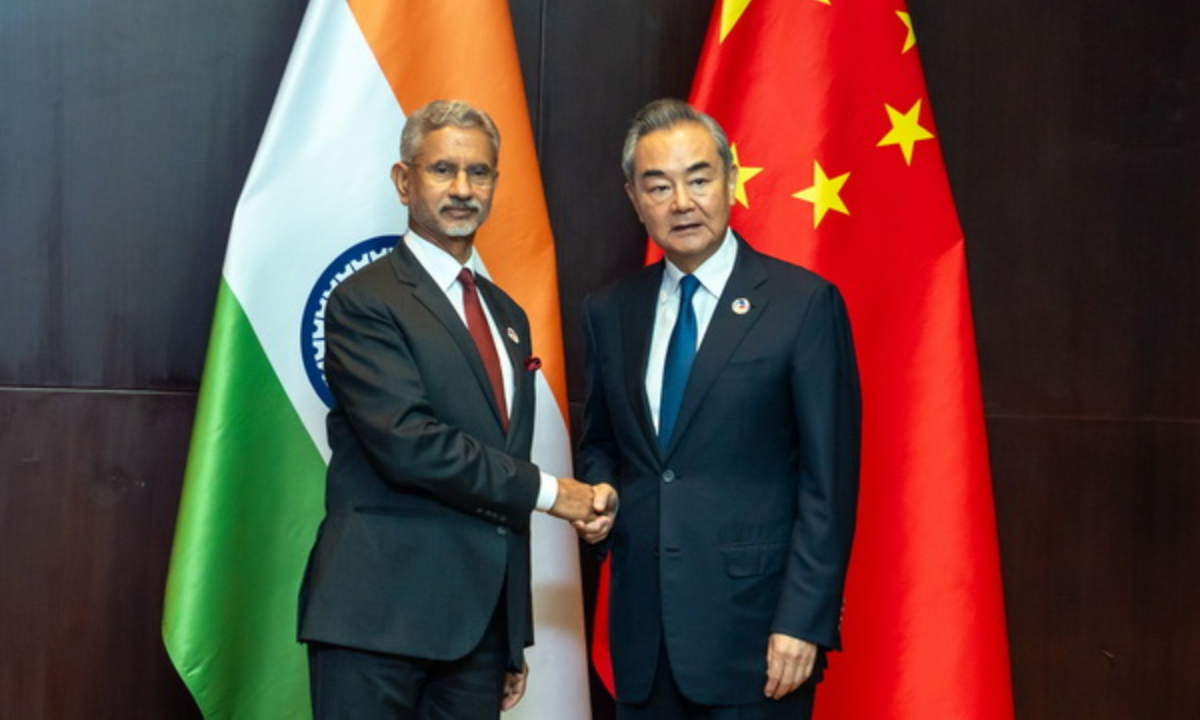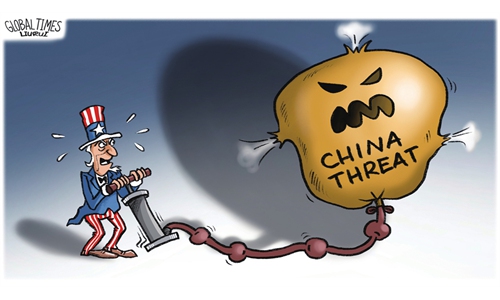
Chinese Foreign Minister Wang Yi meets with Indian External Affairs Minister Subrahmanyam Jaishankar in Vientiane, Laos, on July 25, 2024. Photo: Chinese Ministry of Foreign Affairs
Chinese Foreign Minister Wang Yi met with Indian Foreign Minister Subrahmanyam Jaishankar on July 25, on the sidelines of the ASEAN Foreign Ministers' Meeting in Laos, and both sides agreed to resolve the border disputes as soon as possible.
In mid-July, Reuters cited informed government officials as saying that India is considering speeding up the visa process for Chinese technicians. Industries in India, such as telecommunications, steel and solar panels, require Chinese technicians to operate equipment made in China.
These changes reflect that both sides have realized the urgency of further improving mutual trust.
With a combined population of over 2.7 billion people, China and India are the world's most populous countries and two of the fastest-growing major economies. The changing relationship is important to global geopolitics.
The China-India relationship is a delicate dance of cooperation and competition. Both countries recognize the benefits of economic cooperation and have made significant strides in recent years to strengthen trade and investment ties.
China is India's largest trading partner, and China's exports to India have increased significantly in recent years.
However, despite the growing economic interdependence, the relationship is also marked by intense competition and strategic rivalry.
The biggest obstacle to deepen cooperation between China and India is the trust deficit that has developed over the years.
The two countries have a long history of border disputes, which has left a deep scar on the relationship. The Doklam standoff has only exacerbated the mistrust.
Besides, China's growing presence in the Indian Ocean and its increasing influence in India's neighborhood have raised concerns in New Delhi about Beijing's intentions.
India is in a challenging position.
India wants to benefit from China's economic growth and investment. It also needs to expand imports of intermediate goods, raw materials and machinery and equipment to ensure its expanding exports.
However, India has also been placing more restrictions on Chinese investment due to its own national sentiments and misgivings about China's strategic objectives and impact on national security.
At the same time, India also harbors considerations of replacing China in manufacturing, although it is unlikely that this will happen in the foreseeable future.
India's participation in the Quadrilateral Security Dialogue with the US, Japan and Australia is an indication of its interest in balancing China's influence in the region.
What can be done to improve the relationship between China and India?
First, we need to build trust by resolving border disputes and establishing clear communication channels to prevent misjudgments. Second, we need to strengthen economic cooperation by signing more trade and investment agreements and promoting people-to-people exchanges.
Finally, we must work together on global issues such as climate change, counter-terrorism and non-proliferation to demonstrate our commitment to multilateralism and global governance.
While the challenges are significant, the benefits of a stronger relationship are undeniable.
In the strategic positioning of the development of both sides, it is necessary to clearly recognize that they should not be overly influenced by the US' strategic approach toward China. Instead of putting too much emphasis on each other's strategic competitiveness, it is important to weaken the hostile emotions between the two countries and make decisions more independently in the current geopolitical environment. This will help drive substantial progress in the relationship between the two countries.
As the two countries continue to grow and evolve, it is essential that they work together to build trust, strengthen cooperation and promote peace and stability in the region.



